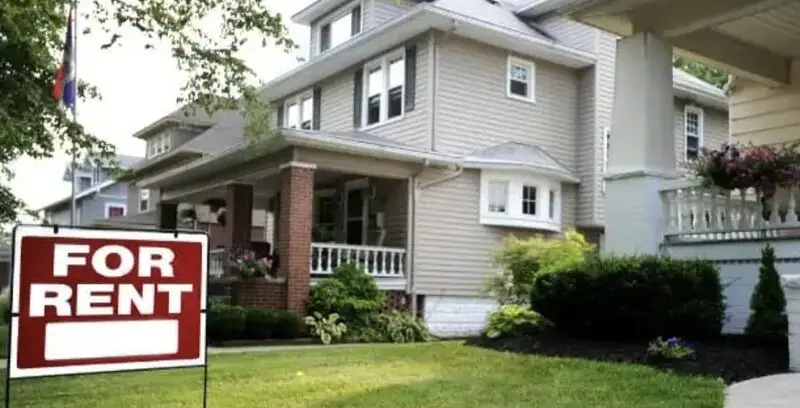Your guide: How to pay no taxes on rental income?
Owning rental properties can be a good way to make money as an investor, but the tax consequences often stop people from doing it. However, if you know what to do and how to do it, you can greatly lower or even get rid of the taxes you have to pay on rental income. So, if you’ve ever wondered, “How to pay no taxes on rental income?” you’ve come to the right place. Today, we’ll tackle just this. Keep reading to learn more.
Also read: How Much Does Zillow Charge to List a Rental?

Overview: How to pay no taxes on rental income?
Many tax benefits to investing in real estate can help landlords keep more of their rental income. If you understand and use these strategies, you might not have to pay taxes on your rental income while building wealth over time. Here are the most important things you can do to lower your rental property taxes.
Understanding Rental Income and Taxes
The Internal Revenue Service (IRS) says that rental income is usually passive income. How it’s taxed and what deductions are available depend on how it’s classified. Before we talk about ways to lower our taxes, it’s important to know how to figure out and report rental income.
All payments made for using or living in a property are included in rental income. This includes more than just monthly rent. It also includes rent payments made in advance, security deposits that you keep, and any services tenants provide in exchange for rent. On your tax return, you have to tell the IRS about all of your rental income.
The taxable part of your rental income, on the other hand, is found by taking out any allowable deductions and expenses. Here’s where the chance to lower your tax bill starts. By taking as many deductions as possible, you might be able to cancel out all of your rental income, leaving you with no tax liability.
Maximizing Deductions to Reduce Taxable Income
Getting as many deductions as possible is one of the best ways to keep your rental income tax rate as low as possible. The IRS lets property owners deduct many costs that come with owning and maintaining rental properties. These deductions can lower your taxable rental income by a lot.
Some common costs that can be deducted for rental properties are
- Mortgage interest
- Property taxes
- Insurance premiums
- Property management fees
- Repairs and maintenance costs
- Utilities (if paid by the landlord)
- Travel expenses related to property management
- Advertising costs for finding tenants
By meticulously tracking and claiming all eligible expenses, you can substantially reduce your taxable rental income. In some cases, these deductions may even exceed your rental income, resulting in a tax loss that can offset other income.
Leveraging Depreciation for Tax Benefits
Depreciation is one of the best tax breaks that rental property owners can get. It lets you spread out the cost of your property over how long the IRS says it will be useful to you. Twenty-seven years is the time frame for rental homes.
Divide the value of the building (not including the land) by 27.5 to get your annual depreciation deduction. You can deduct this amount every year, which will lower your taxable rental income by a large amount. Depreciation is great because it’s an expense that doesn’t cost you money. You don’t spend the money, but you can deduct it from your income.
For instance, if you bought a rental property for $300,000 and the building is worth $250,000, you would deduct about $9,090 each year for depreciation. This deduction can lower your tax bill on rental income by a large amount.

Utilizing the 1031 Exchange to Defer Taxes
Section 1031 of the Internal Revenue Code gives the 1031 exchange its name. It is a powerful way for real estate investors to put off paying capital gains taxes. With this plan, you can sell an investment property and buy another property of the same type with the money you got from the sale. You won’t have to pay taxes on the gain right away.
You can trade up to more valuable properties without having to pay taxes if you use a 1031 exchange. This means that your investment can grow tax-free, possibly for the rest of your life. This plan won’t get rid of your taxes for good, but it can greatly lower them by putting them off indefinitely.
Qualifying as a Real Estate Professional
For people with a lot of rental income or a high income, becoming a real estate professional can give them big tax breaks. Active real estate investors can’t deduct rental losses from their regular income, but professionals can. This is because passive investors aren’t allowed to.
To be a real estate agent, you must:
- Put more than 750 hours a year into real estate work
- More than half of your work hours should be spent on real estate tasks.
- Take an active role in every rental property
- If you meet these requirements, you can consider your rental activities as active, which could mean that you can deduct losses from your other sources of income.
Implementing cost segregation studies
Cost segregation is a way to plan your taxes that can help you get your rental property depreciation deductions faster. In this method, the parts of your property are broken down into assets with shorter lives, so they can lose value more quickly than the normal 27.5-year period for residential rental properties.
If you do a cost segregation study, you might be able to reclassify some parts of the building as personal property or land improvements, such as carpeting, fixtures, or landscaping. Then, instead of 27.5 years, these things can be written off over 5, 7, or 15 years, which means bigger deductions in the first few years of ownership.
Exploring Opportunity Zones for Tax-Free Growth
Investing in Opportunity Zones is a fairly new strategy that can give investors in rental properties big tax breaks. People who live in areas that are struggling economically may be able to get better tax breaks on new investments made in Opportunity Zones.
When you put the money you made from selling other things into properties in Opportunity Zones, you can:

Defer tax on the original capital gain
If you hold on to the gain for 7 years, you can cut your tax bill by up to 15%. You won’t have to pay capital gains tax on the investment’s growth if you hold on to it for at least 10 years. This strategy can work especially well for long-term investors who want to pay as little tax as possible while also helping the community grow.
Also read: There Is No American Dream Anymore, It’s Only Survival
Utilizing Short-Term Rentals for Tax Advantages
Short-term rentals, like those on Airbnb and other platforms, can give you special tax breaks. There is no tax on rental income that you don’t have to report to the IRS if you rent out your home for 14 days or less in a year.
You can still deduct some of your costs based on the percentage of time the property is rented, even if you also use it for your purposes. This strategy can work especially well for people who own vacation homes or other properties in desirable places.
Implementing a Home Office Deduction
You might be able to get the home office deduction if you manage your rental properties from home. You can deduct some of your home costs, like mortgage interest, property taxes, utilities, and repairs, based on the amount of your home that is used solely for running your rental business.
To be eligible, you must regularly and solely use a part of your home for your rental property business. This deduction can lower your taxable rental income even more, which could help balance out other sources of income.
Exploring Self-Directed IRAs for Real Estate Investing
Using your retirement funds in an SDIRA, you can buy rental homes while still getting the tax benefits of an IRA.
In a traditional SDIRA, your rental income grows tax-free until you take it out. If you meet certain requirements, your rental income can grow tax-free in a Roth SDIRA. With this plan, you can invest in real estate and get rich while also lowering your current tax bill.
Conclusion
With the right strategies and careful planning, you can reach your goal of not having to pay taxes on rental income. Using deductions, depreciation, 1031 exchanges, and other tax-friendly methods, you can lower or get rid of the income tax you have to pay on your rental property.
Remember that tax laws can change and are hard to understand. Talking to a qualified tax expert or real estate lawyer is important to make sure you’re using these strategies correctly and in line with the rules in place at the time. If you know what you’re doing, you can get the most out of your rental property while paying the least amount of taxes. This will help you build wealth over time through real estate investing. Happy renting!
Disclaimer: Our articles are NOT financial advice, we are not financial advisors. All investments are your own decisions. Please conduct your research and seek advice from a licensed financial advisor.






